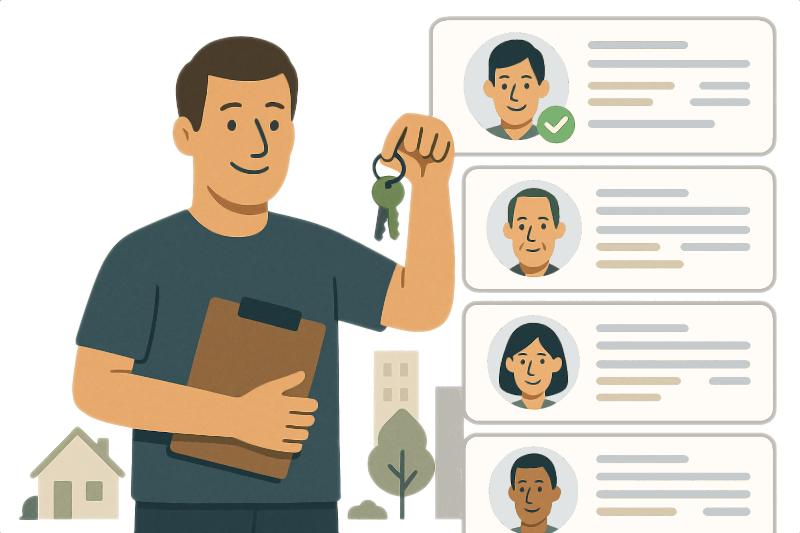Who's the Best Property Manager? We've Got the Data — and We're Launching Soon.
PropertyManagement.com connects homeowners to verified property managers that they can trust based on real performance metrics. No pay-to-play ever.
Are you a property manager? Get verified now.
For Homeowners
Verified Property Managers, Backed by Real Data
We’re the first platform to combine public data with manager-provided insights to identify and verify the best property managers — no guesswork, no paid placements. Whether you’re renting out your first home or managing multiple properties, we help you find the right partner with confidence.
- Know exactly who the top-performing managers are in your area
- Save time, money, and stress by working with pre-vetted professionals
- Get matched based on property type, location, and service quality — all backed by objective data

For Property Managers
Stand Out as a Verified Property Manager
PropertyManagement.com is the first platform that uses objective data to identify and elevate top-performing property managers. By becoming a Verified Property Manager, you gain credibility with owners and grow your portfolio through high-quality, data-driven matches.
- Get discovered by qualified homeowners actively searching for trusted management
- Build trust with verified performance data — not paid listings
- Grow your business with targeted, transparent exposure

How It Works
Property Managers: Get discovered by quality homeowners looking for trusted partners.
Get Verified
Complete our verification process to showcase your business's performance and credibility.
Start Getting Leads
Connect with qualified homeowners actively searching for property management services in your area.
Become the Trusted Manager
Build your reputation with data-backed credentials and grow your business in your local area.
Get Verified in Your Market — Before Anyone Else
Be among the first to earn Verified status in your area.
Get Verified FirstWe respect your privacy. Your information will never be shared.